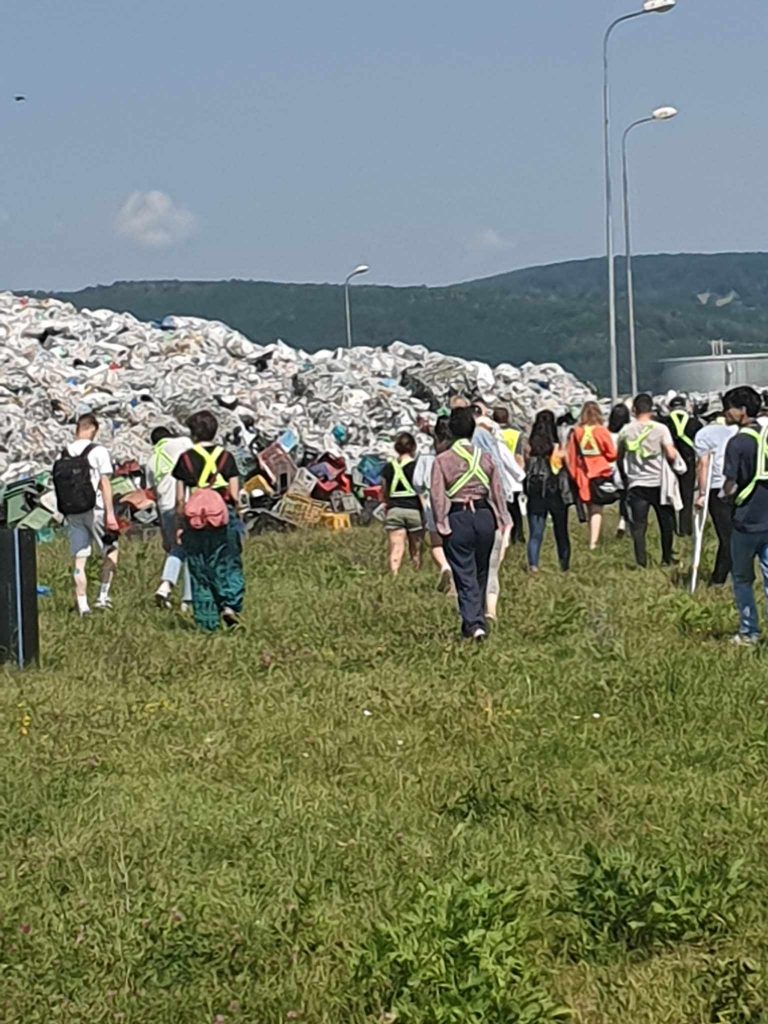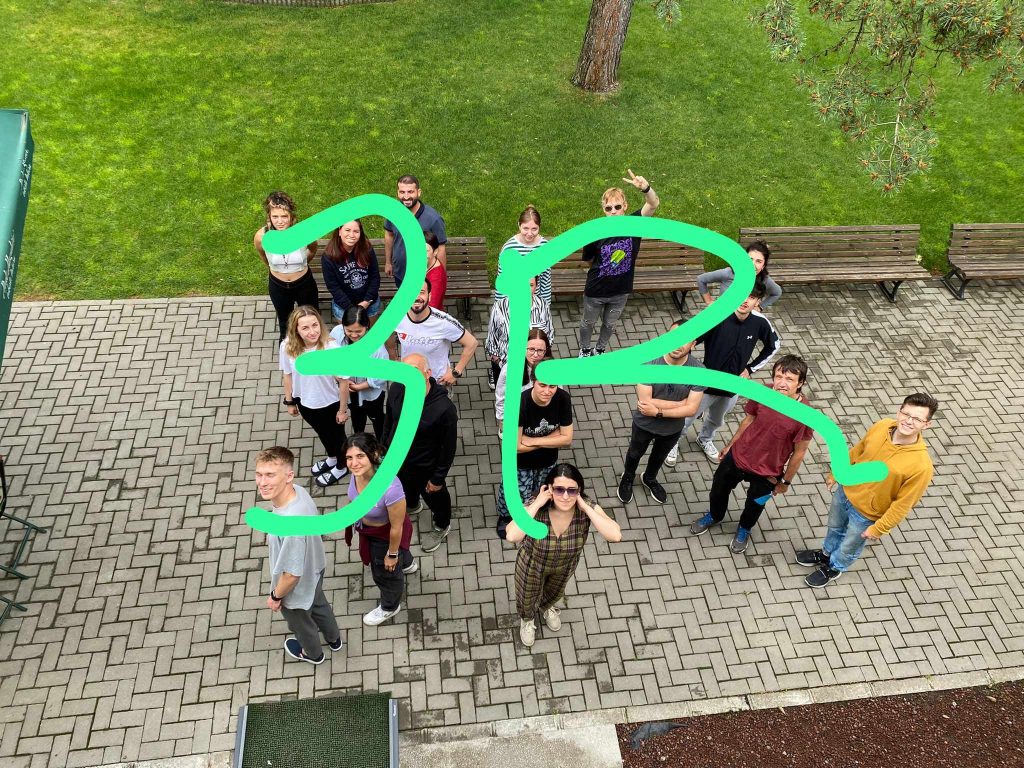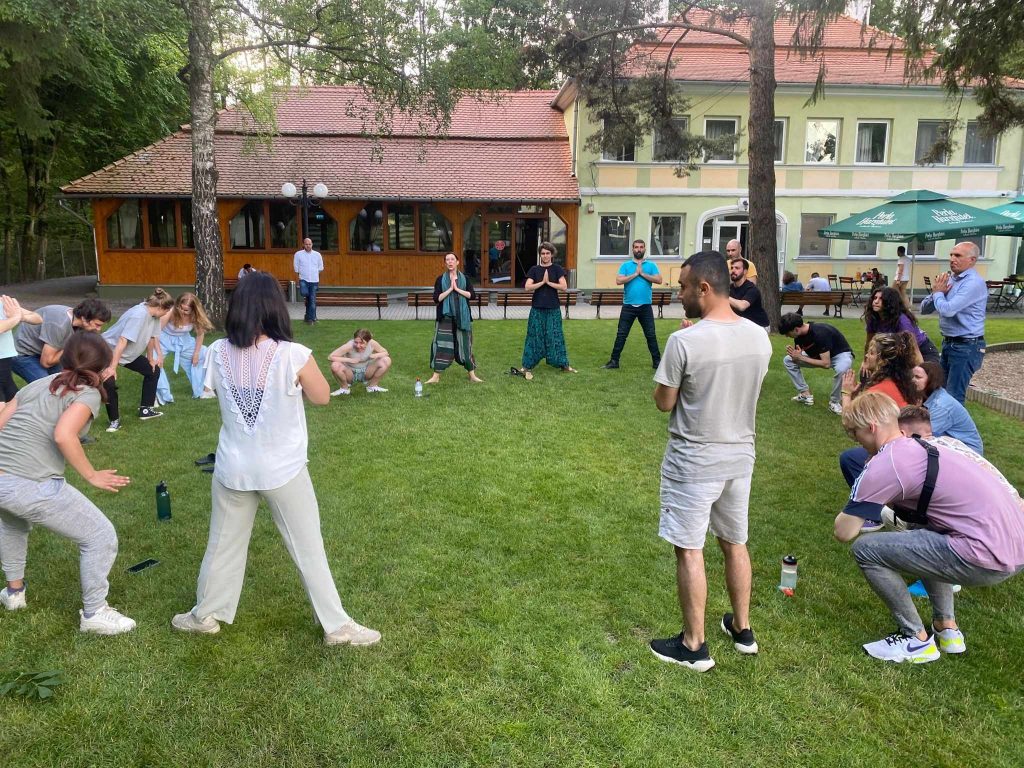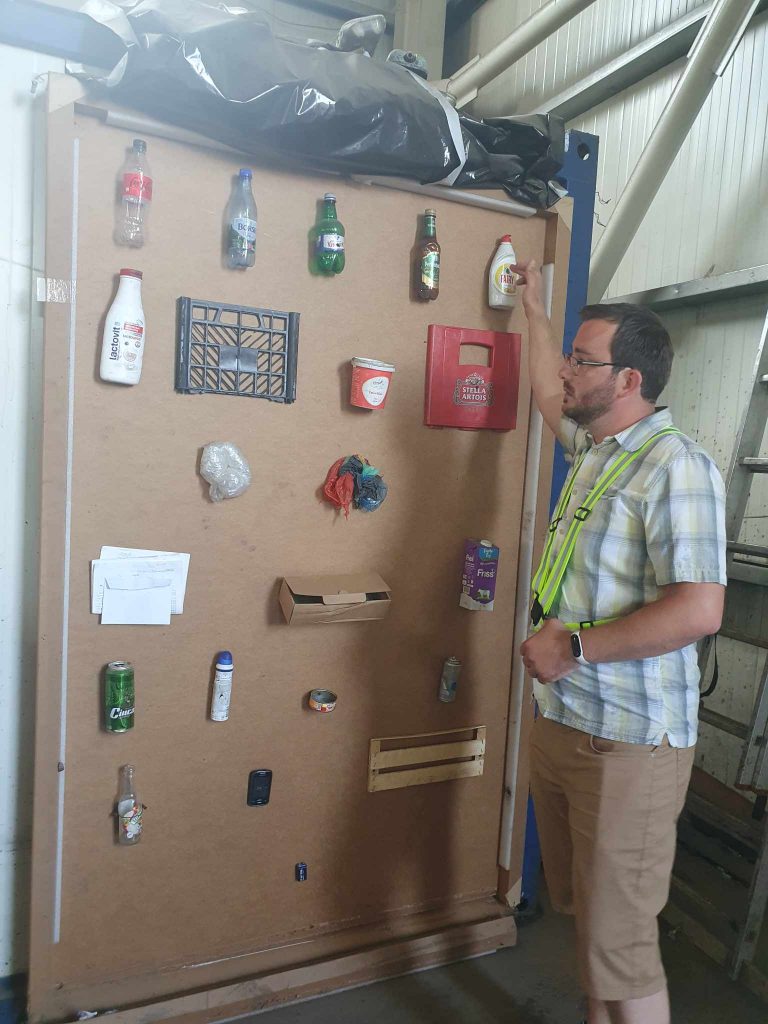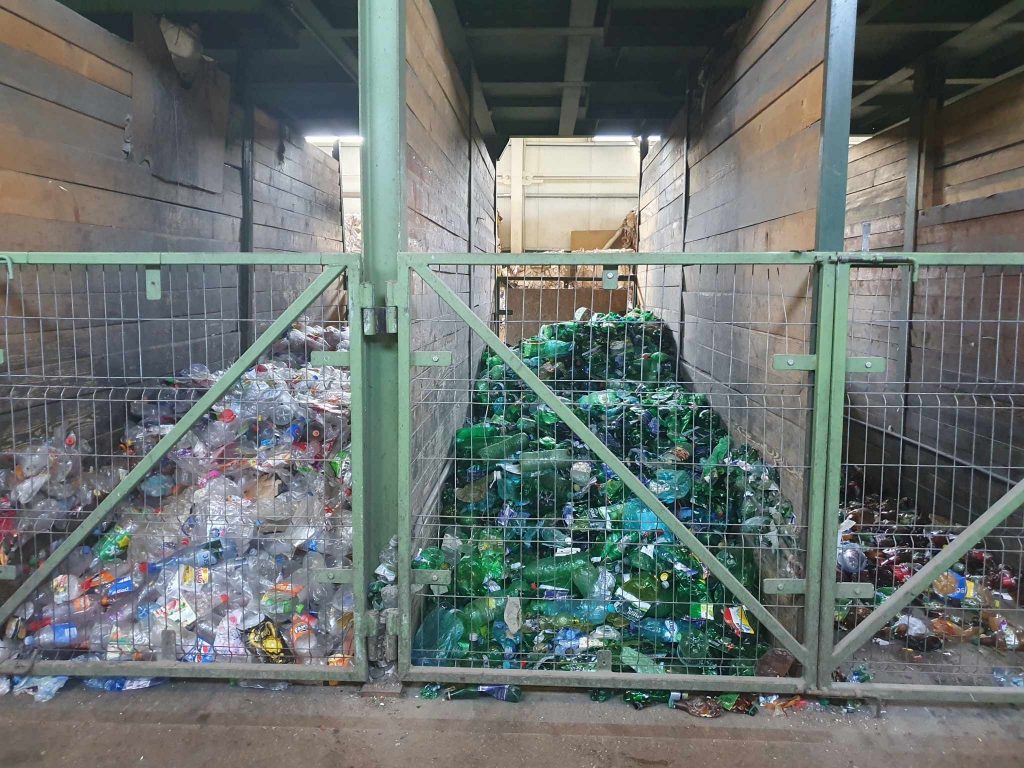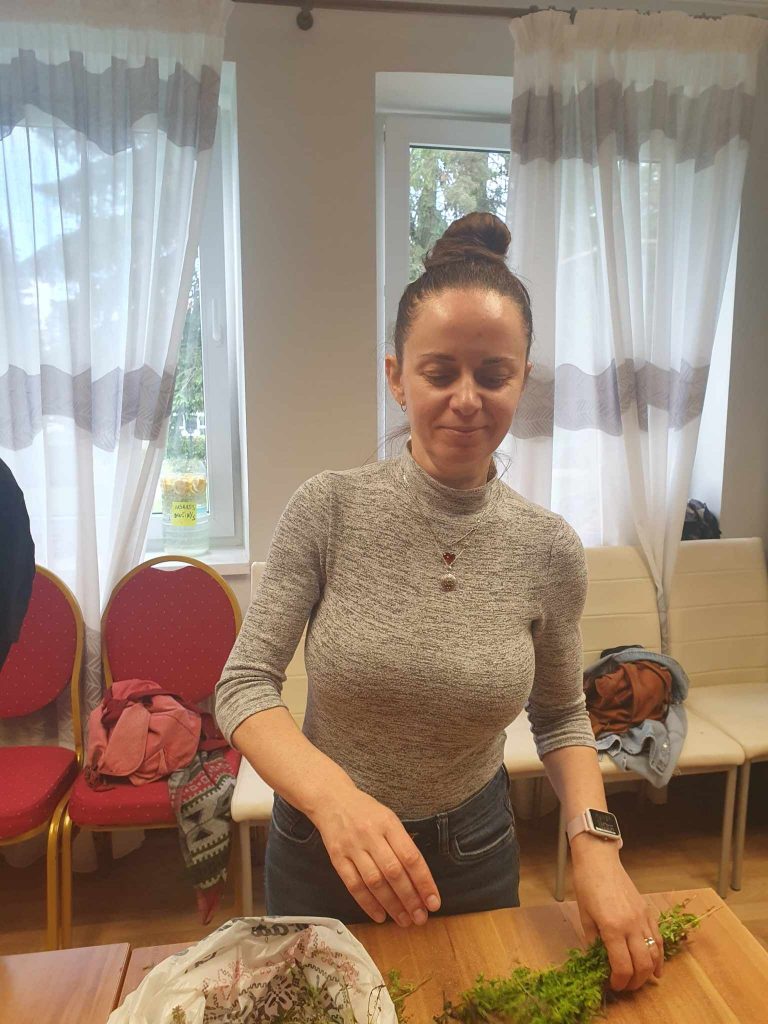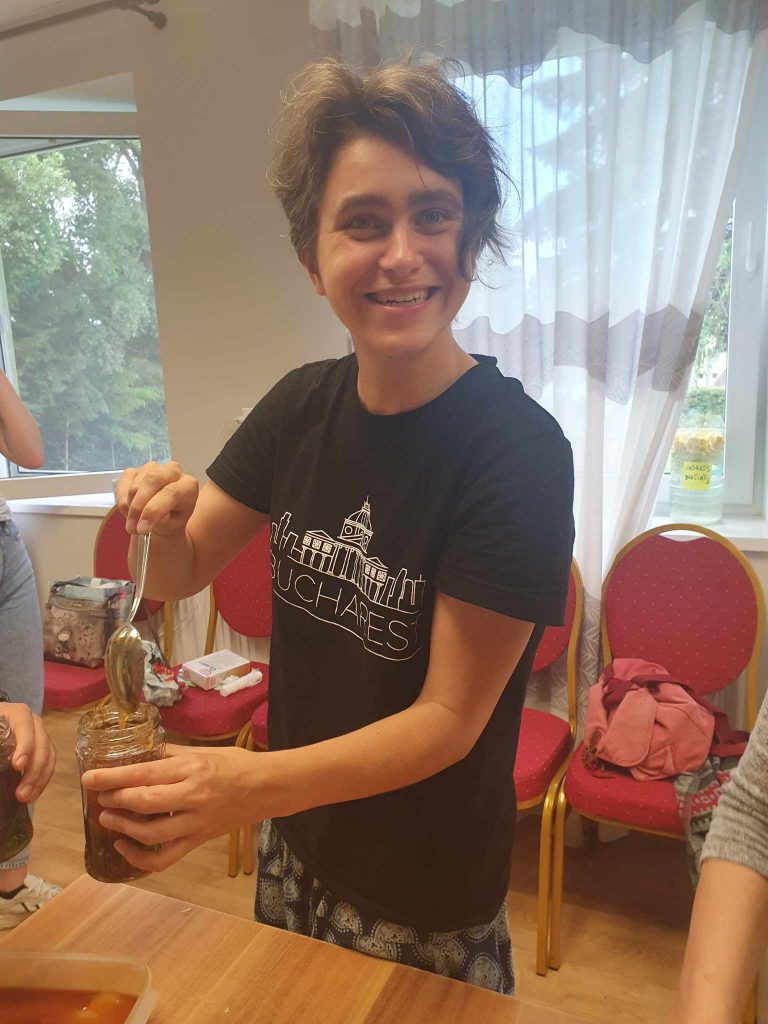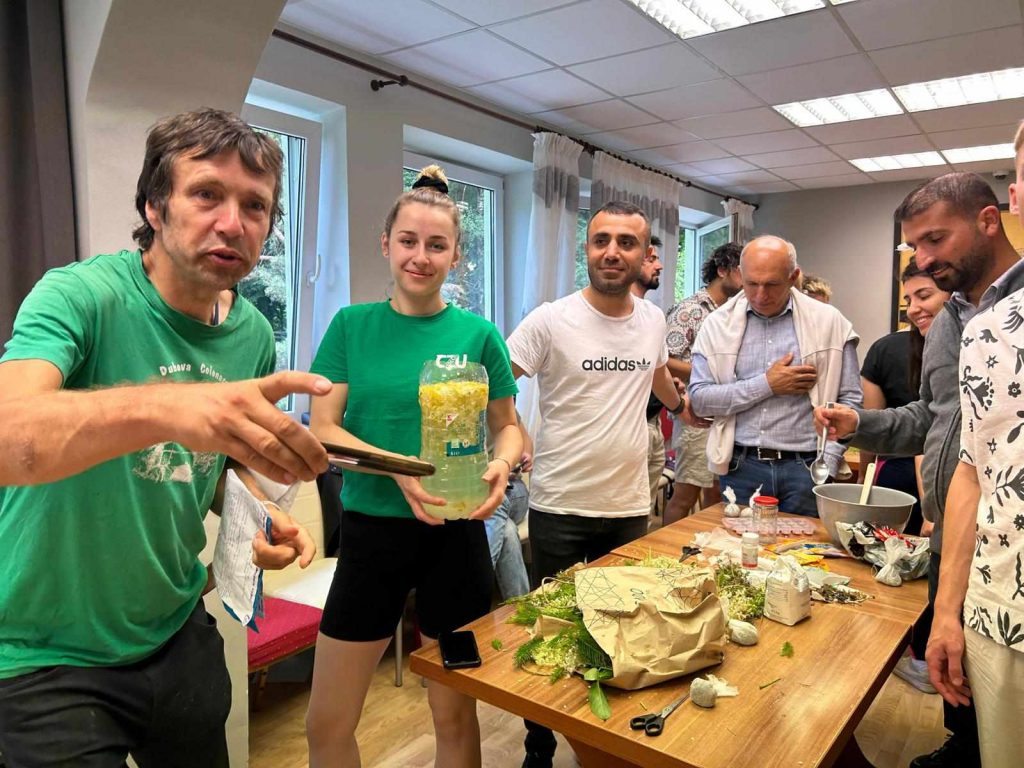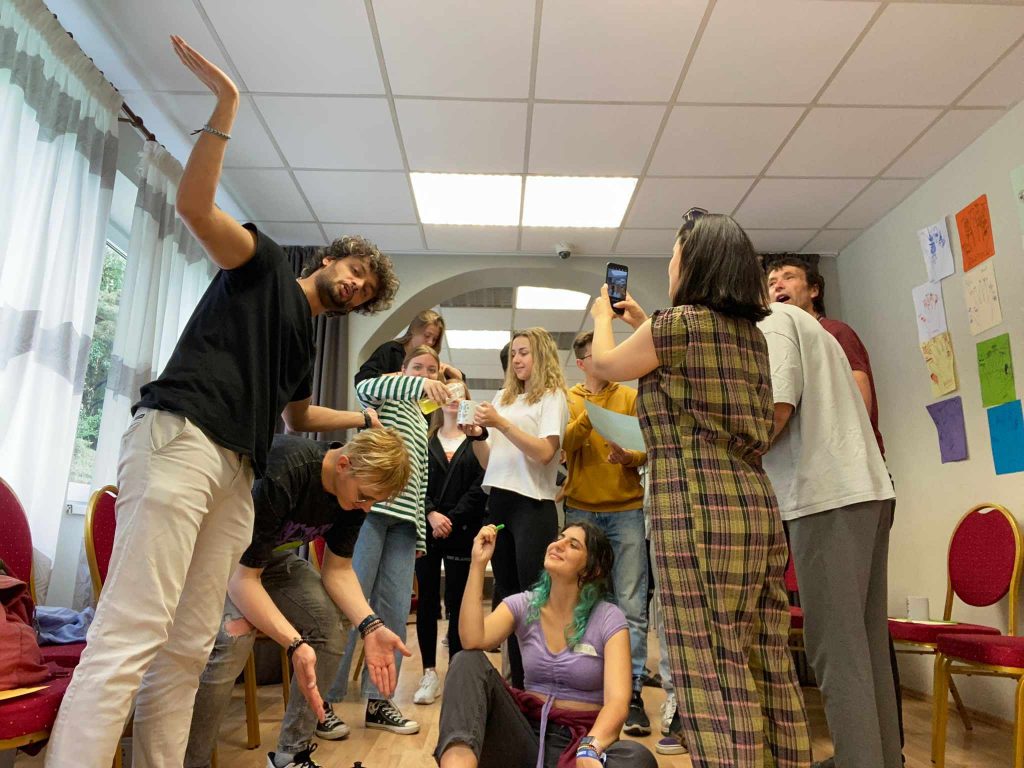Of all the people who responded to the “Innovation Office” invitation for the 3R (Reduce, Reuse, Recycle) Erasmus+ training in Romania, four representatives from Lithuania were selected: two artists who adhere to the philosophy of sustainability and use recycled materials in their work, working with children and youth; an elementary school teacher, and an English language teacher working with high school students.
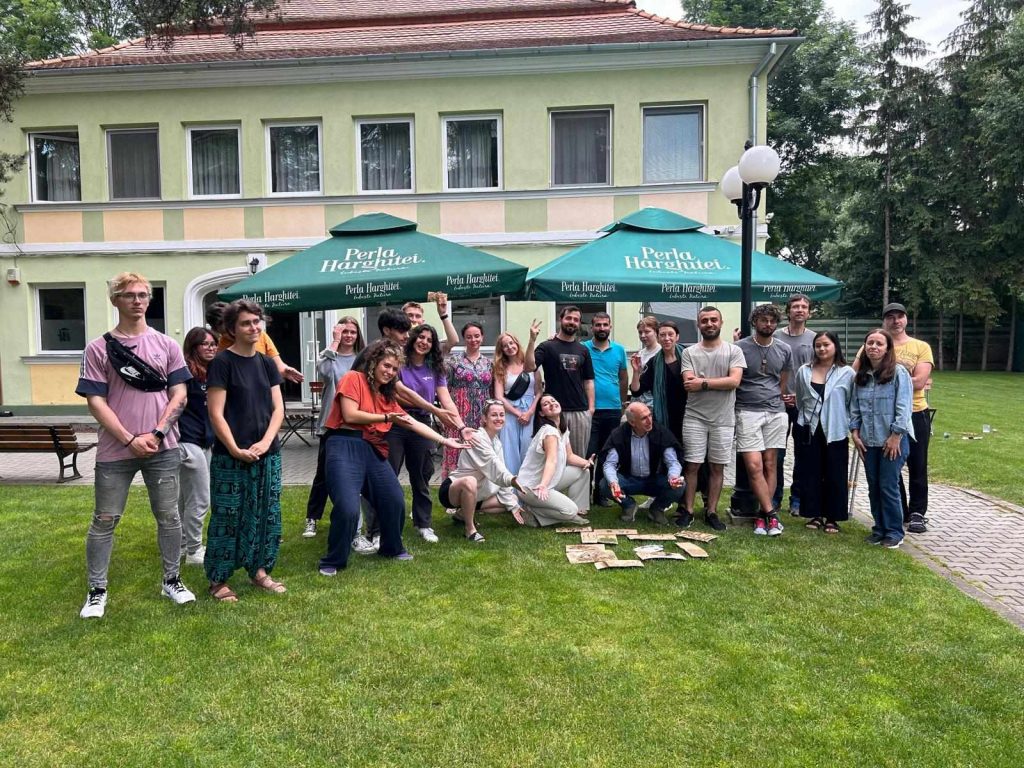
We immediately felt a sense of unity and had many valuable discussions beyond the training sessions. The training took place in Arcus, a village ethnographically included on the UNESCO heritage list, and it involved representatives from 12 European countries. Against the backdrop of ecologically sustainable settlements and distant mountains, we all had the opportunity to share our countries’ experiences, raise relevant ecological and consumer society issues, and seek solutions. We immediately felt a sense of unity and had many valuable discussions.
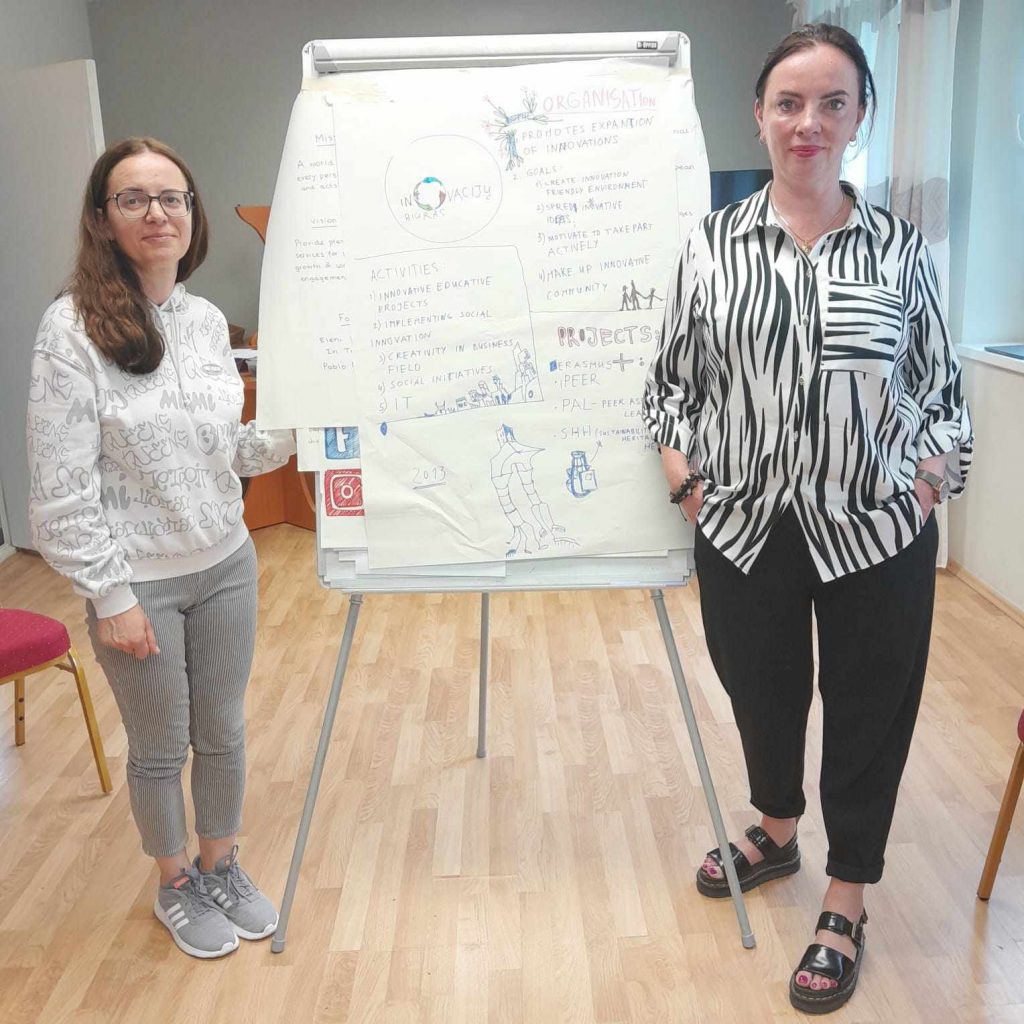
After a day of fun ice-breaking games, we gathered around a richly decorated table of international friendship, listened to the lecturers’ presentations, and engaged in discussions on how to change the world, starting with ourselves. Many representatives mentioned that their countries still lack opportunities for effectively sorting long-lasting waste, and we also shared ideas with one another on how to change daily lifestyle habits. Some suggested using less water at home, while others were even willing to cultivate gardens on their balconies.
Our team heard for the first time about the possibility of using human hair to clean oil spills in the ocean. It was fascinating to learn that Romania surpasses us in the use of renewable energy sources, although we lag behind slightly in the utilization of solar and wind energy. However, waste sorting, which has become a daily habit for us, is still being implemented in Southern European countries.
We also had a highly valuable seminar where we were taught eco-friendly, health-promoting household recipes.
In addition to discussing ecology and sustainability topics, we all had the opportunity to showcase our skills as educators or youth workers. Divided into teams, we organized creative workshops for one another, and all participants gladly engaged in them. Presenting serious issues in the form of games or active exercises sometimes leaves a much deeper impact than traditional discussions or lectures. People working with youth had the opportunity to acquire new methodologies that they will certainly apply in their daily work practices.
There was also a sharing of experiences from various youth organizations across different countries, and participants had the opportunity to present their respective organizations and engage in discussions. We also received valuable information about opportunities for startup development, collaboration between government and educational institutions, as well as the establishment of youth centers and incubators. It was highly beneficial for the youth to learn about the youth passport and its associated information.
The visit to the landfill made the biggest impression – after it, there was probably no doubt in anyone’s mind that sorting waste is indeed essential. We witnessed advanced technologies that transformed organic waste into compost through innovative packaging, as well as the recycling of plastic into concrete and many other possibilities. The sight of piles of unsorted waste that will remain for centuries was shocking. It’s even frightening to think about what could happen to hundreds of white storks and other bird families searching for food among hazardous waste.
A truly excellent strategy was to visit a nature reserve after the landfill excursion, to experience the beauty and true serenity that protected nature provides. During the final seminar discussions, we all felt motivated to spread the message of sustainable living in our communities.
Additionally, while wandering in the village, we discovered signs and symbols in the examples of local, Romanian architecture that were familiar to Lithuanian cultural traditions. Both this impression and the interaction with colleagues from other countries once again lead to the thought that we all share similarities. We are part of one system. Therefore, we must make every effort to preserve it.

